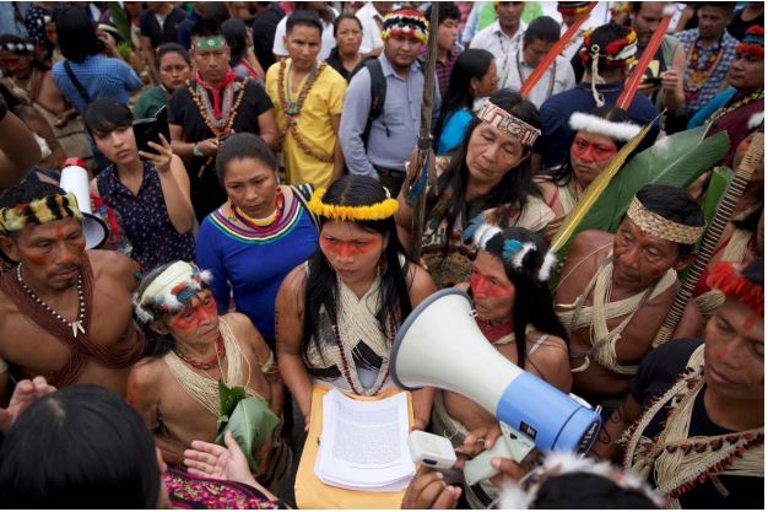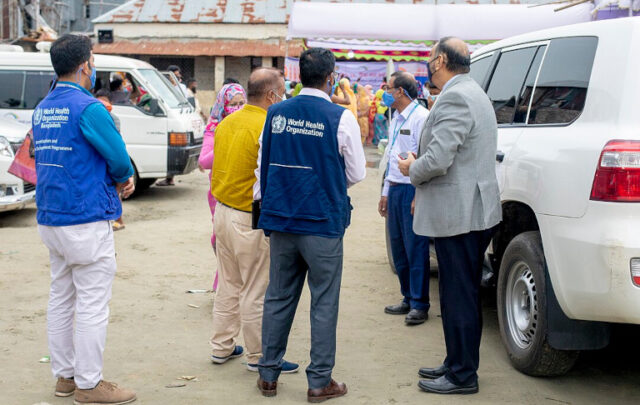After years of teaching environmental law and noting that each issue grew out of cultural, political, historic, economic and philosophical contexts that needed to be understood, I created a class to cover those aspects that eventually came to focus on the idea of Developing Sustainable Environmental Responsibility. It examines the question of what responsibilities we should expect from ourselves and others (and that we can sustain over time). A few years ago I asked the students, who as usual focused on how they could drive less, recycle more, and eat less meat, to consider whether they had responsibilities to people on the other side of the world, people in vastly different situations. We chose to consider the newly contacted tribes in the Amazon. I have a friend who has worked with them, and when I contacted him for an update, he sent me a picture of himself with Davi Kopenawi, a chief of the Yanomami, and a copy of a work plan for an agro-ecology project that Kopenawi hoped would keep the youth of his tribe from moving to the cities. My friend told me that keeping the tribe together on the land would help protect it from the increasing incursions from artisanal miners, forest clear-cutters, and other “bandits”. I later learned that another professor at BU, Julie Klinger, was working on another project of the Yanomami to create an eco-tourism business in which the tribe would exercise tight control over visits to their land.
When we examined the question of how to get contributions to the tribe to help with these and other tribal enterprises, we ran into many questions. We realized we could not advise others to send money without confidence in the method of transmission and reporting back on how the money was used. We turned to the organization Cultural Survival to help us think through this issue, as this organization works closely with indigenous peoples, helping them to develop the projects they choose. As the semesters went by and the work was continued by new students, a consensus developed that what we should produce is a guide to giving, that would help those who feel some sense of responsibility for others, even though they are far away and out of sight, and who want to help indigenous people stay on their lands. It is their land, and it is good for the world if they stay on it. Indigenous cultures are of value to all of us, as is preventing extractive and ruinous activities on their lands, which is more likely if traditional inhabitants remain in control.
Making the guidebook taught us that the very issue of giving to help indigenous peoples is fraught with the connotation that largesse flows in one direction, from the developed peoples, to the indigenous, as if the latter are more primitive. We believe the opposite is true. Those who have lived on their land for centuries have demonstrated how to live on the planet without harming it. Their cultures generally demonstrate sustainability, and it is we of the “developed” world who are primitive, so primitive that we don’t yet know how to organize ourselves so that we can last. It is we who must learn from them. Effective help will not likely be through organizations that arrogantly decide what indigenous peoples need, who don’t respect their cultures and what they keep sacred. We prize efforts that help indigenous peoples navigate the modern world, but which respect their goals and do not seek to supplant them. Learning how to give is doable, but complex.
The guidebook at http://www.bu.edu/rccp/files/2020/07/Can-Citizens-of-Industrialized-Nations-help-Indigenous-Peoples-Keep-Their-Land.pdf must be considered draft. Its focus thus far is the Amazon, but we started adding more information to expand the scope. We need more information about where organizations are having success in helping with the central goal – preserving cultures so that they can evolve in the way they wish, so that families will not lose their young to the cities, and watch the incursions of exploitation fill the gaps. We hope that this draft guidebook helps anyone who is seeking out information to get started, but that they will continue the effort, for we know we have only just begun this job. Please send comments to [email protected] with “Indigenous” in the subject line.
Teaser photo credit: Indigenous Waorani elders, youth and leaders gathered in Puyo, Ecuador, on February 27, 2019, to launch a lawsuit against the government’s auctioning of their ancestral lands to the oil industry. (Photo credit: Mitch Anderson/Amazon Frontlines), article by Reynard Loki of Independent Media Institute, April 8, 2019, at: https://www.alternet.org/2019/04/we-do-not-want-to-disappear-indigenous-peoples-go-to-court-to-save-the-amazonfrom-oil-company-greed/





